International Conference in Vilnius University Invited to Discuss Culture in the Face of the War
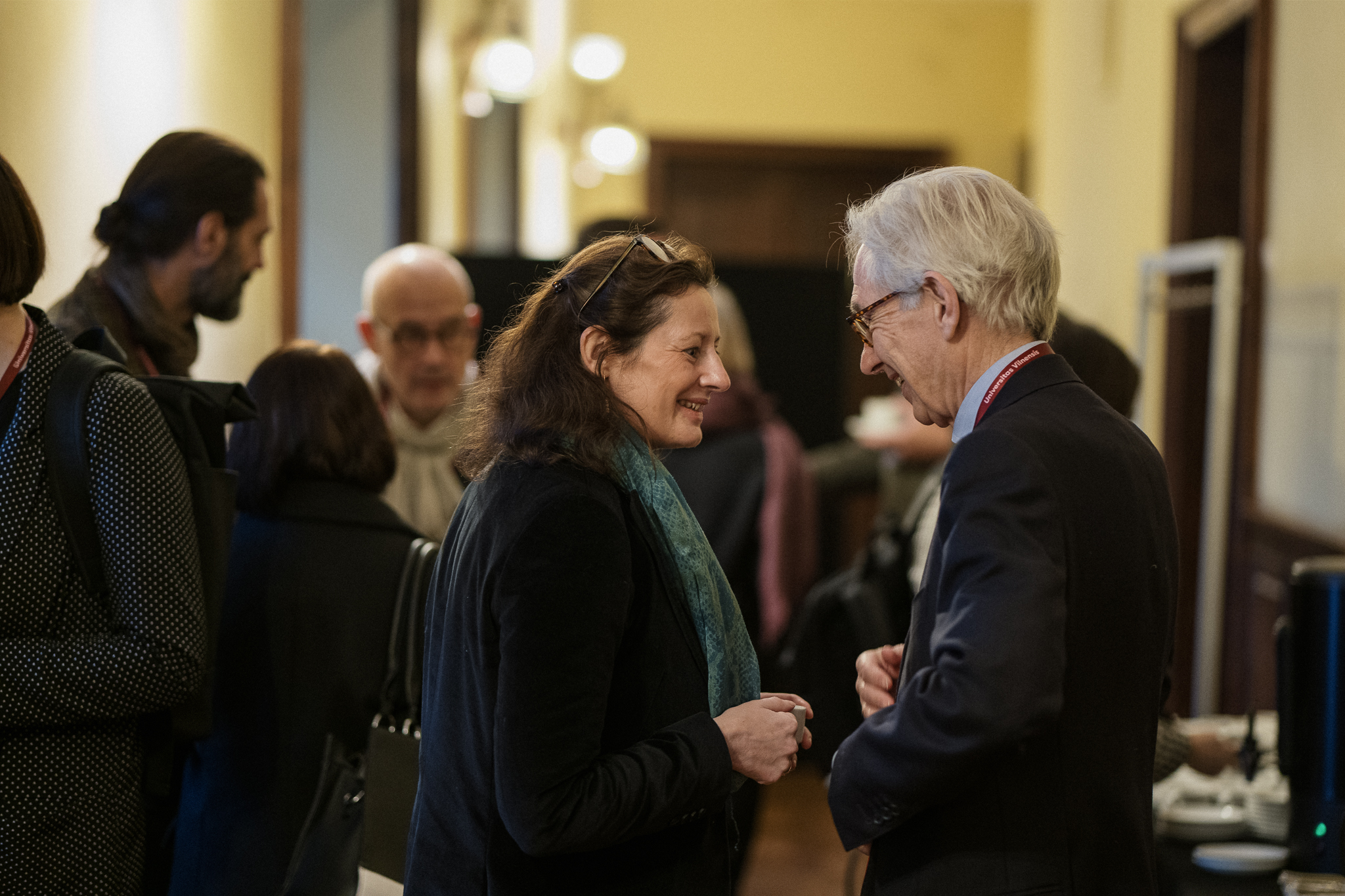
Conference participants
November 30th - December 1st, Vilnius University, in collaboration with the French Embassy and the Institut Français, organised a conference “Culture and Imaginary Facing the War”. Nearly thirty experts in culture, science, and media from various European countries participated in discussions about the impact of war on culture and explored the role that culture can play in the context of war.
“When we talk about war, we often emphasise the advantages of weaponry, technology, strategies, or the readiness and will of societies. Culture usually remains on the sidelines of this conversation. It is often seen as a luxury of peacetime. But it is precisely the culture itself that provides meaning to what is really being fought for. Isn’t culture both a consolation and a catalyst in the great struggle for European boundaries?” VU rector Prof. Rimvydas Petrauskas asked at the international conference.
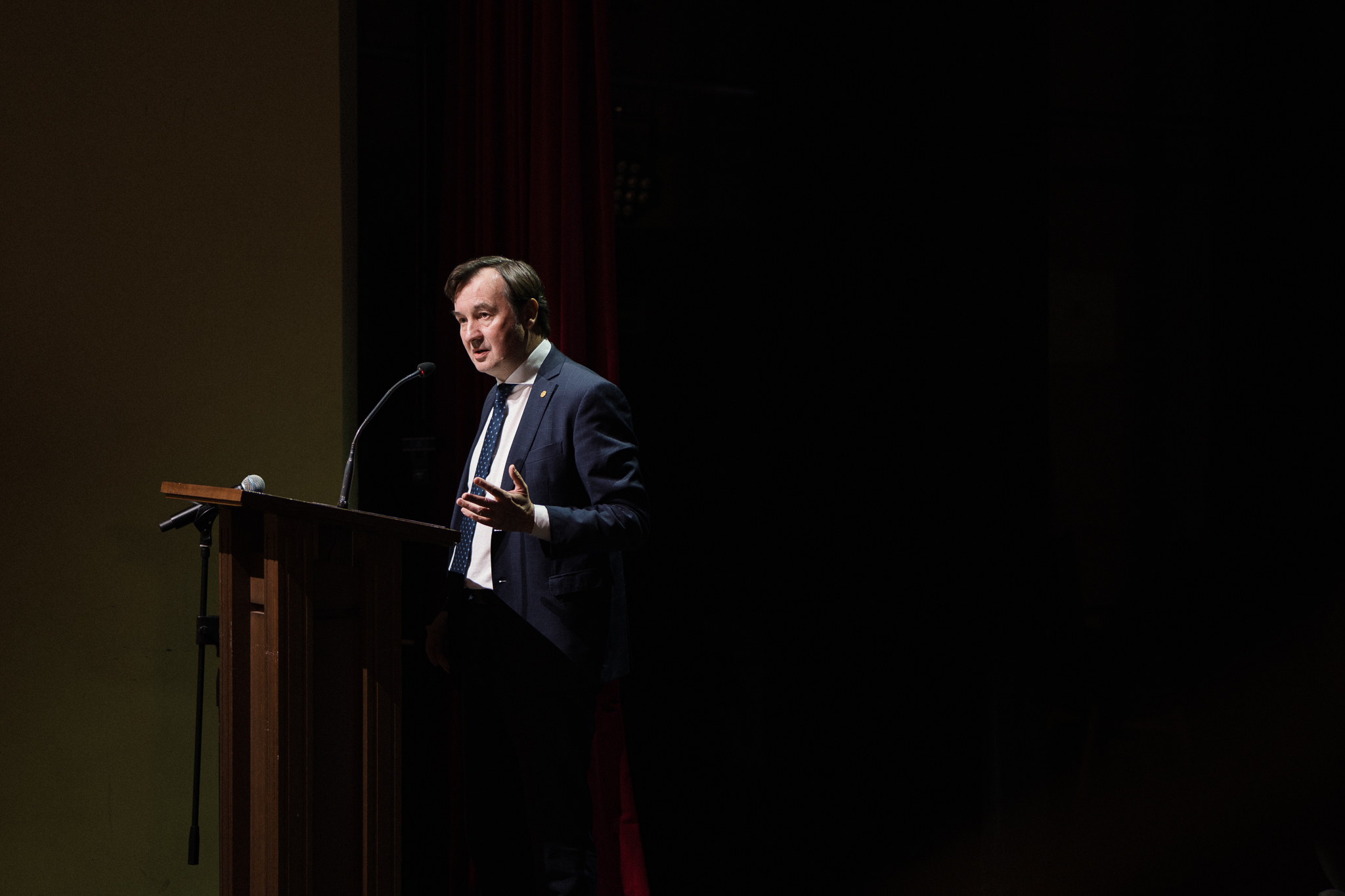
Prof. Rimvydas Petrauskas
On the first day of the conference, the main focus was on the representation of European (especially Central and Eastern) history and geography, as well as issues related to the dissemination of narratives. The inaugural discussion, titled “Ideas from Central Europe” was moderated by VU Faculty of Philology associate professor Vilius Bartninkas. According to the scholar, discussions about culture in the context of war are particularly important and should be continued: “Discussions among Europeans about the impact of the war in Ukraine on European culture are crucial. It demonstrates that we still lack a common understanding. We still hear attempts by some Western intellectuals to orientalise Eastern Europe, view Ukraine as a post-colonial “other” and separate Russia’s imperial politics from culture. Fundamental questions about how to decolonise this cultural space have not been posed. This means that we need to continue the conversation. Lithuania’s role is significant. We should not be complacent in these discussions, like Socratic depth.”
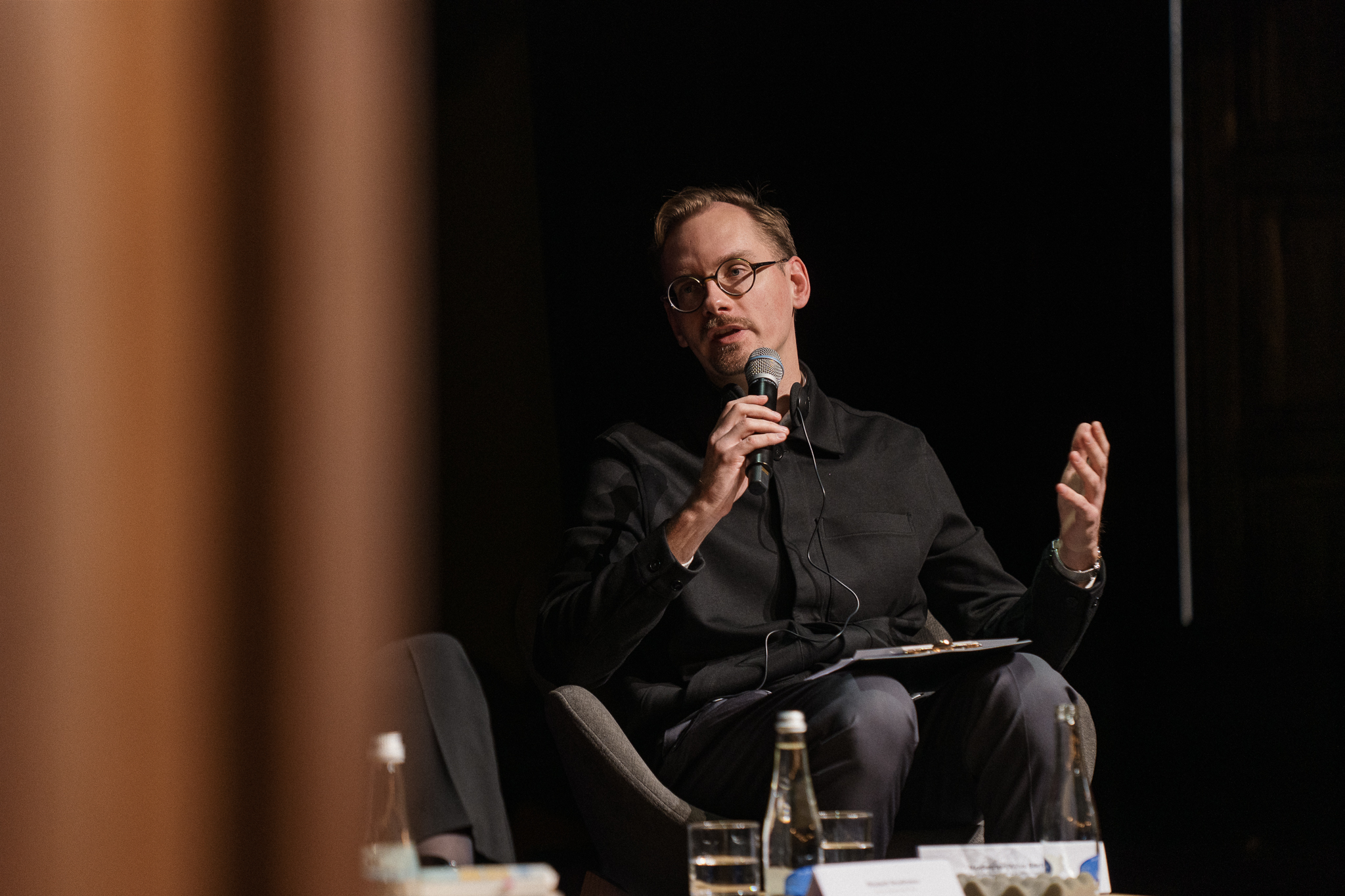
Assoc. Prof. Vilius Bartninkas
The director of the Institute of Literary, Cultural and Translation Studies at the Faculty of Philology at VU, Assoc. Prof. Inga Vidugirytė-Pakerienė participated in a discussion on the borders of Eastern Europe. “Considering that the issues related to Ukraine have long been clarified and thoroughly discussed for us, in this case, I felt that the discussions were more necessary for the French. On the other hand, they brought to this conference a well-nurtured culture of debate as their legacy. It was gratifying to experience that the new reality of war has changed the perspective of most French speakers towards Russia. Together, we learned about the French desire to get to know and collaborate more closely with countries that were not as interesting to them as cultural partners before. It was pleasant to see how enthusiastically French culture opens up to Lithuania,” shares the associate professor.
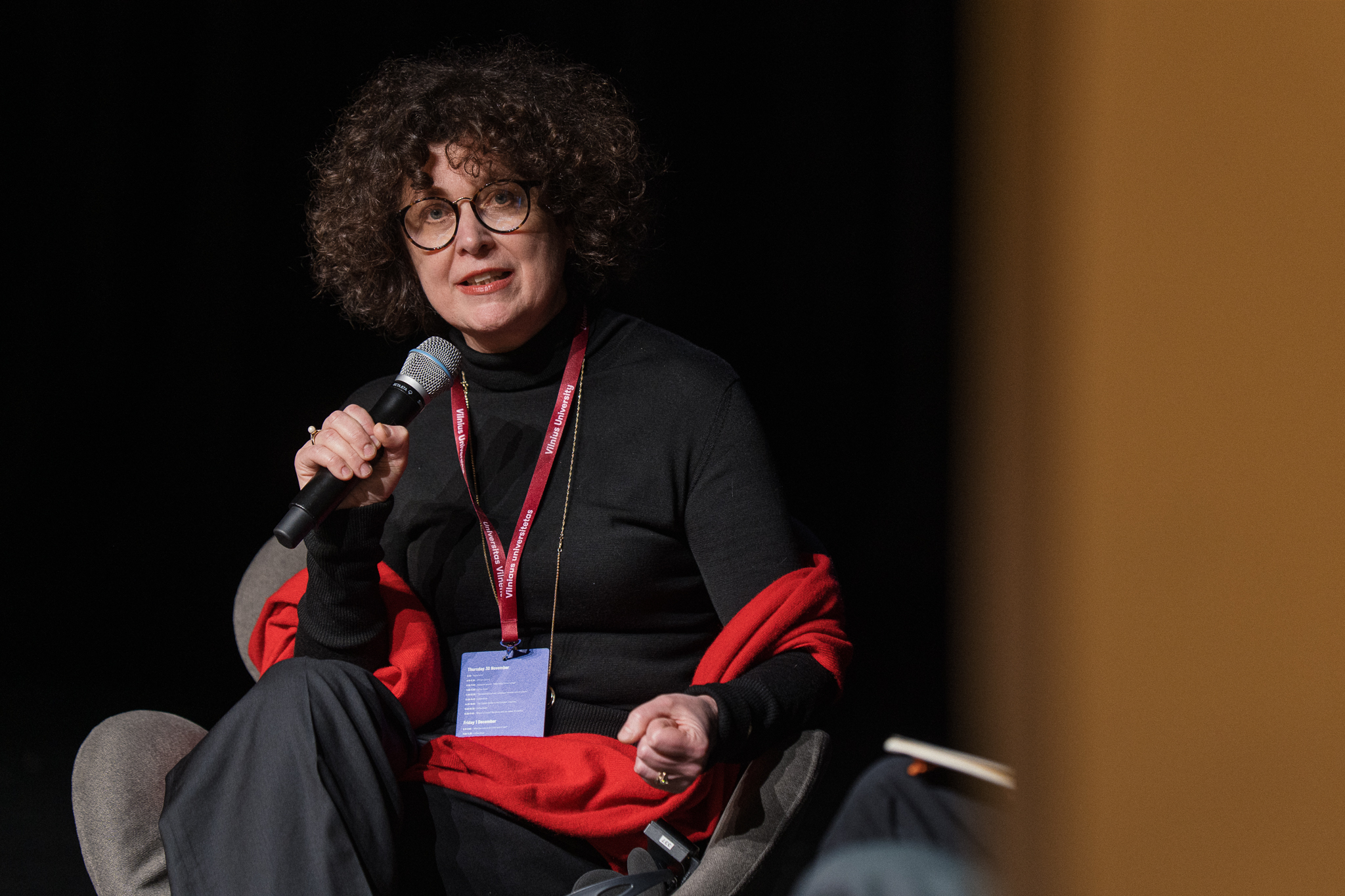
Assoc. Prof. Inga Vidugirytė-Pakerienė
On the second day, the discussion expanded further by emphasizing the circulation of narratives in Europe and the mobilisation of cultural players in the context of upheavals triggered by the war of aggression instigated by Russia in Ukraine. Valerio Rocco Lozano, Director of Circulo de Bellas Artes in Madrid, who participated in the discussion “What Can Culture Do in the Face of War?”, believes that culture should contribute to a stronger and more united Europe: “In the current difficult times in our continent (not only because of the war) culture should play a crucial role in transcending national perspectives, and therefore contributing to a stronger and more united Europe. In this sense, a more audacious European common cultural policy should be put in place by European Union institutions. Artistic freedom and cultural rights are essential for the existence of a true democracy, and they should therefore be strongly protected in every member state.”
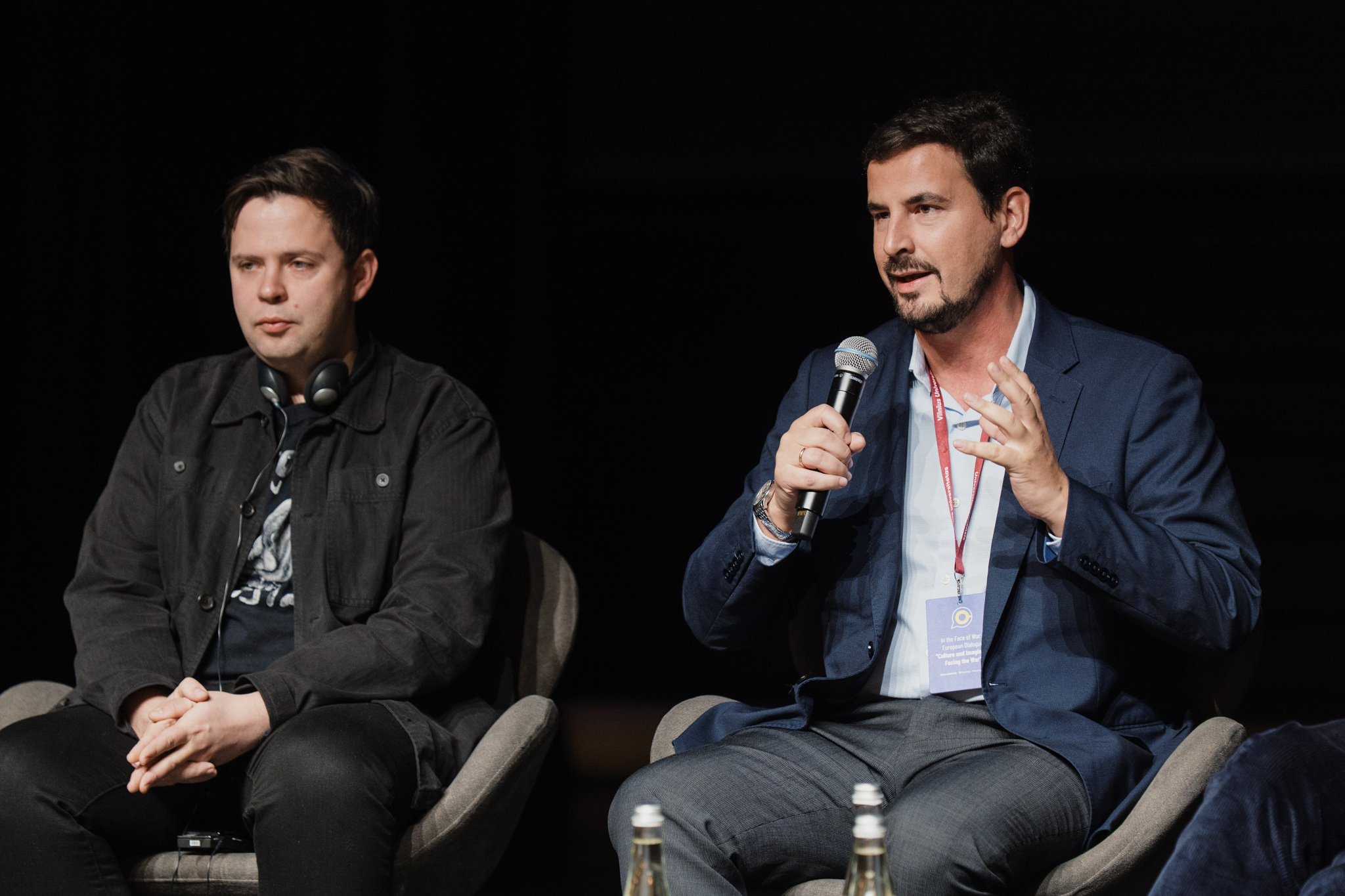
Valerio Rocco Lozano (on the right)
The conference at Vilnius University was part of a new public debate series initiated by the French Institute in Lithuania entitled “In the Face of War – European Dialogues”. The project aims to promote dialogue and debate about the upheavals in Europe caused by the war in Ukraine.